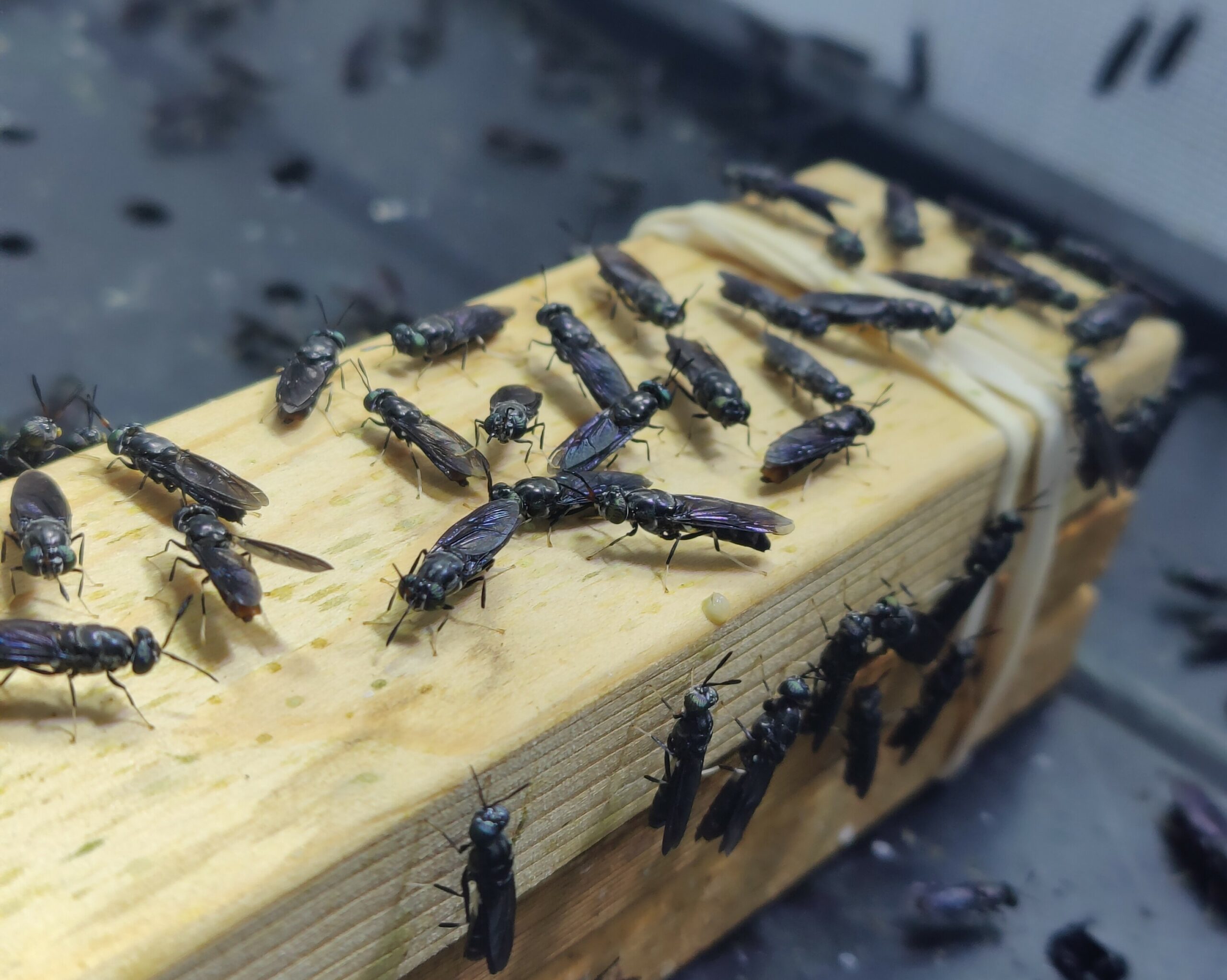
Breeding and Egg Laying in Black Soldier Fly Farming
Black soldier flies (BSF) are increasingly farmed for their larvae, which are rich in protein and used as animal feed and/or for waste recycling. Controlled breeding and egg-laying processes are key to efficient BSF farming.
The Breeding Environment:
Adult BSF are non-pest insects and do not feed as such. They rely on energy reserves accumulated during their larval stage. Breeding occurs in controlled environments with optimal temperature (27-30°C), humidity (60-70%), and lighting (mimicking natural daylight cycles). These conditions encourage mating and egg laying.
Egg Laying:
After mating, BSF females seek dark, narrow crevices to lay eggs, often in specially designed egg-laying traps. These are sometimes filled with organic material like decaying vegetation or food waste that mimic natural egg-laying sites and attract females. An often discussed topic is the need for a special attractant – a specific smell – to attract the females to lay eggs to a specific location, but this is not required, it is enough to use the same egg traps continuously, that have that special odor of other BSF having laid eggs. In a controlled environment it is however smart not to have anything other than egg traps as a potential place to lay the eggs. A single female can lay 500-900 eggs in her short lifespan of 5-8 days.
Egg Collection:
Eggs are small, pale, and laid in clusters. Farmers typically collect these clusters daily and transfer them to the nursing area. Under ideal conditions, eggs hatch within 2-4 days. The tiny hatchlings, neonates, are then nursed for a few days into small larvae, which are then ready for protein production and/or waste processing.
Controlled BSF farming relies on creating optimal conditions for mating, egg laying, and egg collection. This efficient process ensures a steady supply of larvae, making BSF a sustainable solution for protein production and organic waste management. Using climate control technology such as Manna Insect’s Manna MIND is key to creating, maintaining and monitoring optimal breeding conditions automatically. Manna Insect also has specially designed BSF farming units for breeding and hybrid units that can host both breeding as well as rearing processes in the same production unit.
To learn more about BSF farming, its business potential, farm management tools, the climate control, and to get started with insect farming please visit the Insect Farm Hub and create a free account to access free training materials, tools and more.
Learn more about BSF farming in the
Insect Farm Hub!
Manna Insect has launched a comprehensive insect farming platform designed for learning, managing, monitoring and networking. There are tons of free content about insect farming, as well as a lot of paid premium content, that dives even deeper in black soldier fly business.
Read also: Challenges in farming BSF outdoors
